How Do Security Cameras Work? What Types Are Available?
Last Updated on
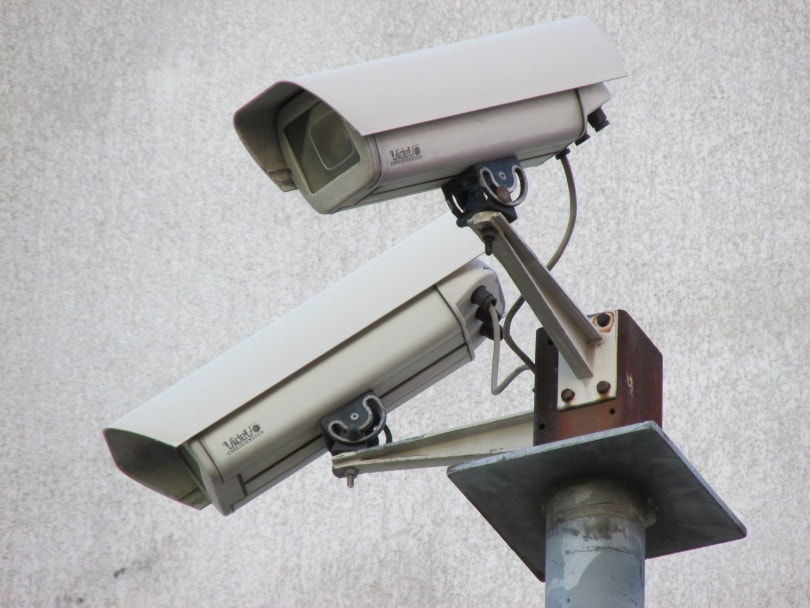
Nowadays, there are many different choices of security cameras on the market, so there are great ways to ensure your family’s safety. They are almost unnoticeable when you place them in strategic locations, so people will not even know you have a camera.
Many people are unfamiliar with security cameras and are not aware of the benefits they can bring to a household. This article will provide more details about how security cameras work and explain more about this helpful device.

Why should I purchase a security camera?
These days, there is a lot of crime happening around the world, so we can’t help but want to feel more secure and safe in our day-to-day lives. Security cameras are a great way to increase the safety of your home because you will always know what’s going on with the simple click of a button. The biggest issue with these cameras might be privacy and the price.
Security cameras cannot directly stop burglars, but you will be able to know if someone is in your home and you’ll be able to record the crime if it occurs. Also, it’s understandable that you’ll feel less privacy with cameras inside your home.
Security cameras can be pretty expensive, so keep that in mind before purchasing one. Still, when you consider the pros and cons, security cameras can be beneficial.
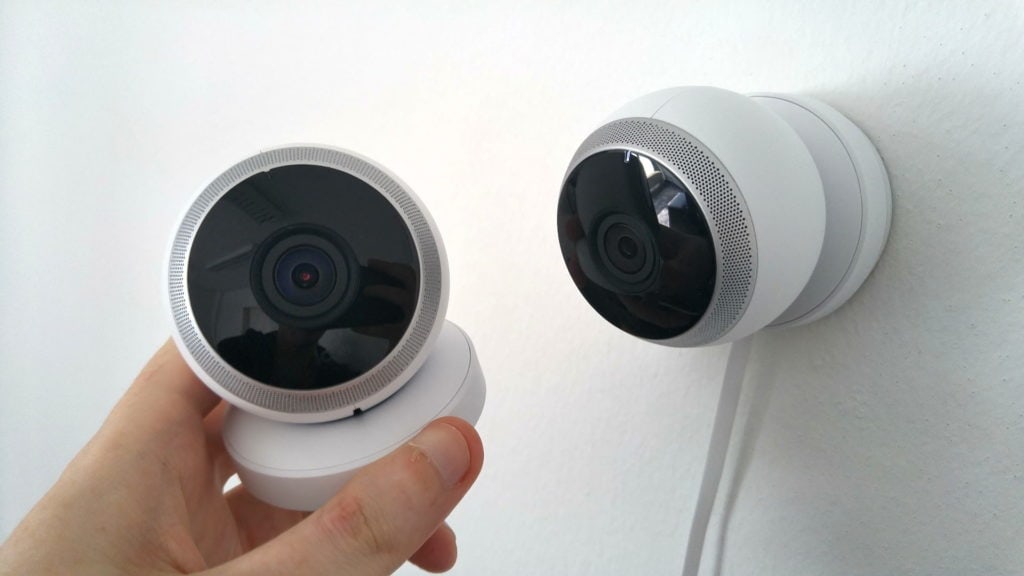
Are security cameras expensive?
As mentioned above, security cameras can be expensive, although the price varies depending on the location and the type of the camera. Typically, security cameras can cost anywhere from $40–$400 or more.
Indoor cameras are usually less expensive than outdoor cameras. Also, installing a security camera can have additional costs. For example, the installation will cost you anywhere from $100 to $200. Of course, if you don’t need the job done professionally, you can save on costs and install the camera yourself.
Other costs to consider are additional surveillance and monitoring. For top-notch security, a monitoring company can cost $10–$50 per month or $100–$600 per year. Also, another thing that can be pricey is the maintenance. Maintenance costs don’t apply to low-quality cameras, but maintenance can be expensive if you have a professional camera.
How many security cameras will I need?
The number of cameras you’ll need to secure your home depends on the size of your home and on the level of security you want to have. The minimum would be one security camera that you would position at the main entrance of your home. For more protection, you can add cameras in multiple locations, both indoors and outdoors. You could put them in hallways, rooms that burglars can access to enter/exit the home, or just any ground entrance.

Types of security cameras
The two main categories of security cameras by location are indoor and outdoor cameras. Also, there are two different categories of power in security cameras:
- Wired
- Wireless
You can read more about some of the most common types of security cameras below.
Wired Indoor Camera

Wired indoor cameras have the advantage of being connected to a central recording device by ethernet or coaxial cable. Therefore, these cameras don’t need battery replacements. You can mount these cameras on walls or ceilings, but they require professional installation.
- No need for batteries
- More cables for your home
- Require professional installation
- Don’t work if Wi-Fi or power is out
Wired Outdoor Camera
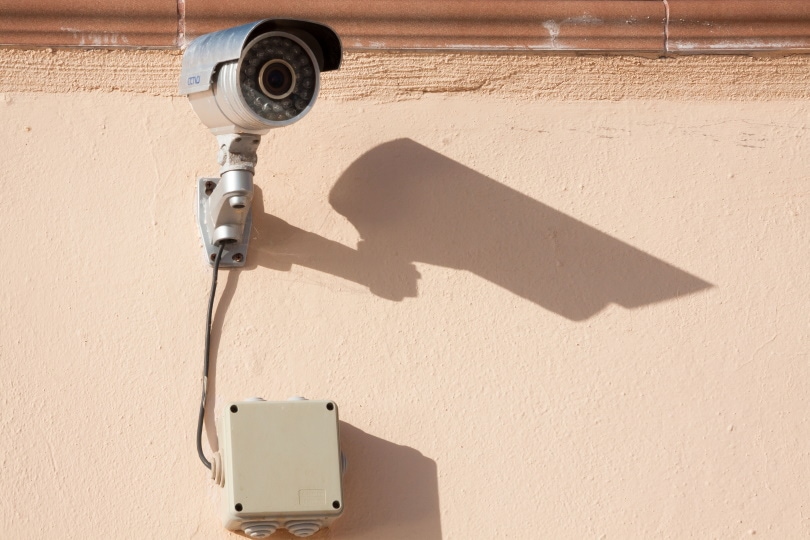
Wired outdoor cameras are similar to indoor wired cameras. These cameras have wires that are connected to a central recording device. They are commonly bullet-shaped, and you can mount them on ceilings and walls. Wired outdoor cameras do not need an outlet outside— which is convenient—although they also require professional installation.
- Reliable
- No need for an outdoor outlet
- Require professional installation
Indoor Wireless Camera

Indoor wireless cameras are also called IP cameras or Wi-Fi cameras. As the name suggests, they do not need any wires to function. Instead, they are connected through a Wi-Fi network, and their footage is stored in the cloud. These cameras are easy to install, so you can install an indoor wireless camera yourself, although they need to be connected to an outlet. There are even specialized indoor cameras, like baby cameras, that can record humidity, air quality, and temperature.
- Professional installation is not required
- No wires
- There are specialized indoor versions available
- Don’t work if there’s no Wi-Fi
- You will need to pay for cloud storage
- Needs an outlet
Outdoor Wireless Camera

Outdoor wireless cameras are similar to indoor ones, although they are larger and usually weather-resistant. They have a broad view range and can cover large areas of your outdoor space. These cameras should be mounted on structures or walls using a mounting plate. Some outdoor wireless cameras include an alarm and spotlight to scare burglars.
- Resistant to bad weather
- Can include an alarm and spotlight to scare intruders
- Wide view range
- Don’t work if the connection to Wi-Fi is slow or if there’s no Wi-Fi
- Needs an outlet
Wire-free Outdoor Camera

Wire-free outdoor cameras are similar to outdoor wireless cameras, but they operate on batteries. They are pretty simple to install, and they record when they sense motion because of the limitations of batteries and their power. You can connect some of these cameras to solar panels which will keep the batteries charged.
- No need for a power outlet
- Simple to install
- Batteries are commonly rechargeable
- Can be used with solar panels
- Only records when it senses motion
- Batteries don’t last for a long time
Video Doorbell
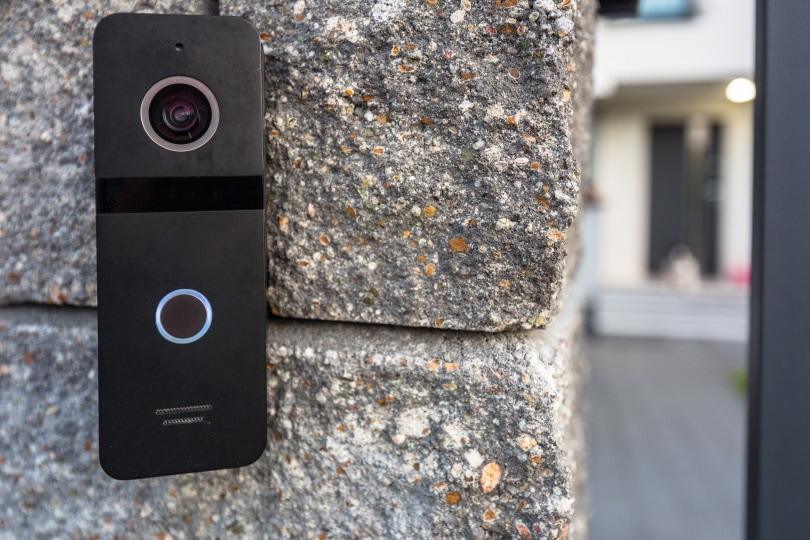
A Video Doorbell is a smart option for people who want a quick solution and don’t want to spend a lot of money on a security camera. These cameras replace your standard doorbell, and they record whenever they detect motion or when someone presses the doorbell. There are battery-powered models and the ones that need to be wired into your doorbell wiring.
- Simple to install
- Inexpensive
- Only records outside your door
Floodlight Camera
https://www.instagram.com/p/CZZg-9pJz9C/
Floodlight cameras are outdoor wireless cameras with a large floodlight. The floodlight turns on simultaneously with the camera, which helps to catch better footage and scare the intruders. These cameras can be plugged into an outlet or connected with your current wiring.
- It has a large floodlight
- Good for scaring intruders and getting better footage
- Need to be wired or plugged into an outlet

So, how do security cameras work?
Although it varies depending on the security camera, all security cameras operate similarly. The most significant difference that determines how a security camera will work is if the camera is wired or wireless. Also, IP/digital security cameras function differently than analog security cameras.
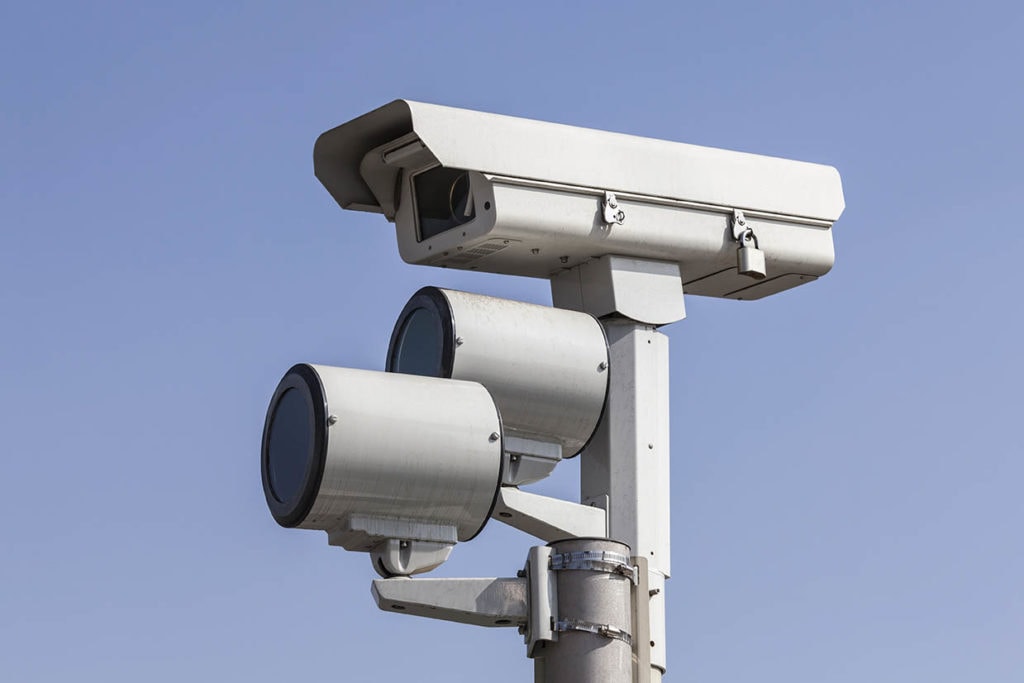
Wired VS Wireless
Wired security cameras have been around for years, and they require an electrical source to function. They rely on video cables that transmit audio and video signals to a central hub. The footage can remain on the device for you to watch, or you could also send it outside of your home to a network. The network would allow you to watch it later or monitor it live.
These cameras get their power through a hardwired cable, but the power can also be sent from the wire connecting the camera to the central hub with a POE cable (Power Over Ethernet). The hub could be a:
- DVR: Digital video recorder attached to the security camera with coaxial cables
- NVR: Networked video recorder
- Good audio signals and clear video
- Non-stop power to the security cameras
- Reliable signal
- Too many wires that you’ll need to hide
- Wiring must run through numerous locations in the home
Wireless security cameras are newer-generation cameras with wireless transmission, and they function on Wi-Fi. The Wi-Fi sends the camera signals to a cloud server where you can view the footage in real-time or watch it later. Some of these cameras have SD cards that can store limited footage on the device.
These cameras also commonly include two-way audio, night vision features, voice control, and other perks. You can divide these cameras to:
- Wireless: Video signals are transferred to the central hub wirelessly, but the power to the camera still comes from wires
- Wire-free: These cameras operate without batteries
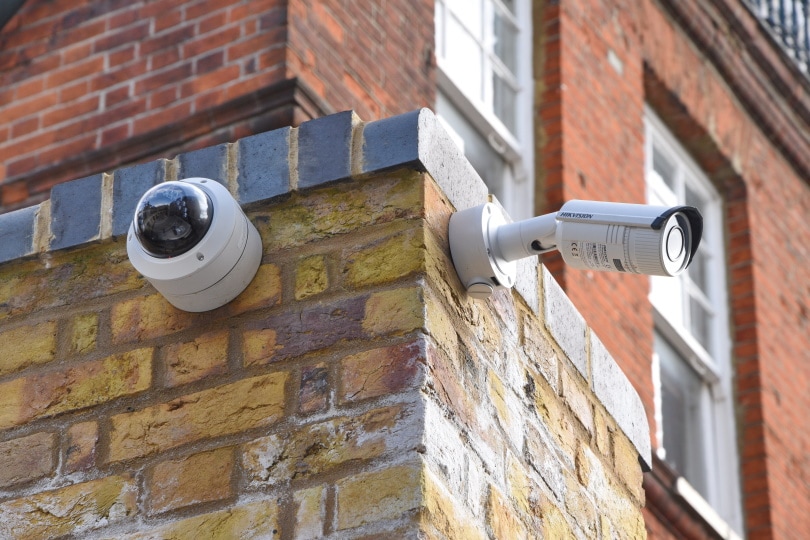
Analog Security Cameras VS IP/Digital Security Cameras
Even without the internet people can have security cameras in their homes. That’s why there are both analog security cameras that operate without the internet and IP/Digital security cameras that do require Wi-Fi.
Analog security cameras are a bit older, and therefore they lack some perks that Wi-Fi cameras can offer. These cameras record the video to external storage (commonly an SD card or a hard drive). Analog security cameras don’t allow you to watch live footage. Instead, you need to wait until the recording is done to see the video.
With these cameras, you cannot have a live stream, but newer models have some perks like night vision and infrared.
IP/Digital security cameras have all components in a single app. That app acts as a monitor, video, and voice recorder and allows you to do multiple things. You can control the camera from a distance, watch live footage, and get notifications if someone is captured on camera.

Conclusion
If you’d like to feel safer in your home or office or just need a camera to monitor your baby, security cameras can be a perfect option. Consider the benefits and disadvantages of each security camera type, and figure out which one will suit your needs the best.
Featured Image Credit By Piqsels
About the Author Robert Sparks
Robert’s obsession with all things optical started early in life, when his optician father would bring home prototypes for Robert to play with. Nowadays, Robert is dedicated to helping others find the right optics for their needs. His hobbies include astronomy, astrophysics, and model building. Originally from Newark, NJ, he resides in Santa Fe, New Mexico, where the nighttime skies are filled with glittering stars.
Related Articles:
How to Clean a Refractor Telescope: Step-by-Step Guide
How to Clean a Telescope Eyepiece: Step-by-Step Guide
How to Clean a Rifle Scope: 8 Expert Tips
Monocular vs Telescope: Differences Explained (With Pictures)
What Is a Monocular Used For? 8 Common Functions
How to Clean a Telescope Mirror: 8 Expert Tips
Brightfield vs Phase Contrast Microscopy: The Differences Explained
SkyCamHD Drone Review: Pros, Cons, FAQ, & Verdict
